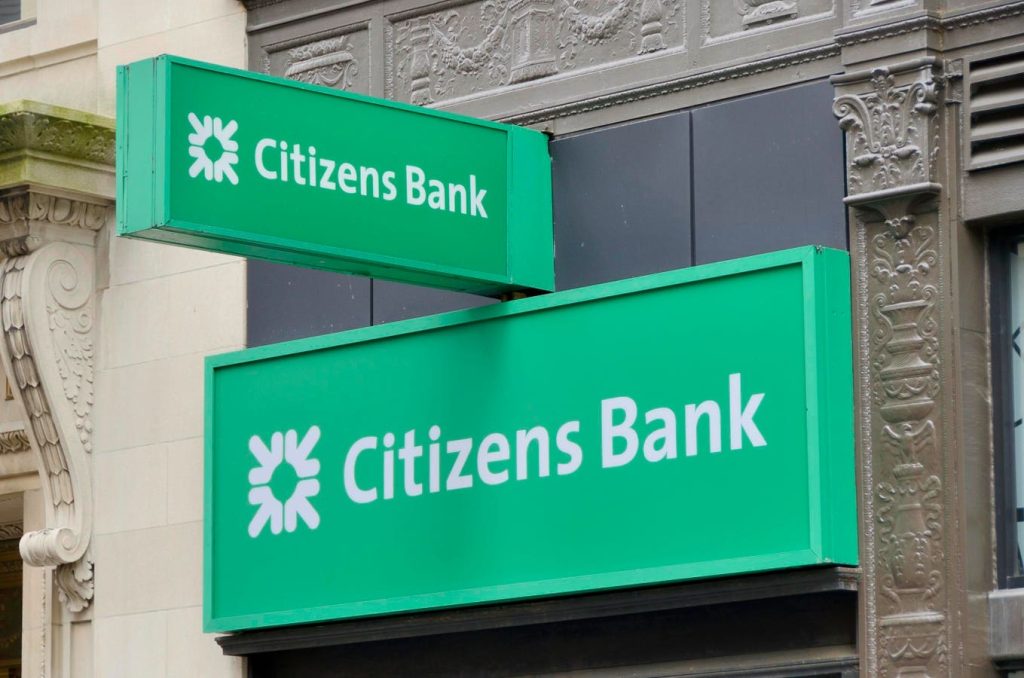Boston, USA – June 8, 2012: The facade of a Citizens Bank location in Boston, Massachusetts. … [+]
Banks are not fans of heavy regulation. Few companies or individuals are. Paying attention to rules takes time, effort, and money. Although sometimes unnecessary and overzealous, quite often regulation is the result of companies not operating in ways one might expect them to. In this way, it resembles lawyers’ contracts. Sometimes attorneys put in highly restrictive language because once in earlier parts of their careers there was a situation when something ridiculous or terrible happened and they’re determined that it never will again.
An example was the indictment of a TD Bank employee by the Manhattan District Attorney’s office. The documents alleged that the defendant, who worked in the bank’s anti-money laundering department, gained access to customers’ personal identifying information and then directed people on a Telegram channel to open bank accounts in those names, deposit the checks, and then steal the money. The charges “stemmed from a larger investigation that charged five other individuals in a check fraud scheme that totaled nearly $500,000.”
An aberration? Not according to a Bloomberg report, which calls it “part of a little-noticed pattern” in banks across the country. Public attention often overlooks “lowest-paid employees” who sell data as, according to Bloomberg, banks argue that customers have the primary responsibility for not getting conned. But it is the banks who run the systems and grant the permissions for data access. The banks are the entities that would need to put technical measures into place to prevent data theft. It isn’t something customers can do.
Such issues need attention, but one can perhaps understand why they don’t, given the number of highly irregular activities that periodically happen. Look at Wells Fargo, charged in 2016 with extensive fraud in unauthorized customer accounts, as NBC News reported at the time. Thousands of employees opened upwards of 2 million accounts without customer permission.
Then, in 2023 as I previously covered, the FBI and Office of the U.S. Attorney for the Southern District of New York both filed and settled a civil suit against Wells Fargo on Monday. The suit alleged that the bank “violated the Financial Institutions Reform Recovery and Enforcement Act (“FIRREA”) by fraudulently overcharging hundreds of commercial customers, many of them small and medium-sized businesses and federally-insured financial institutions, who used the Bank’s foreign exchange (“FX”) service.” FX is currency trading. The suit claimed the bank defrauded 771 customers by charging higher fees than they said the bank would change.
Last month, the Consumer Financial Protection Bureau sued Capital One “for cheating consumers out of more than $2 billion in interest payments on savings accounts.” The CFPB alleged that the bank promised that a certain type of account called “360 Savings” provided one of the “best” and “highest” available interest rates, “but the bank froze the interest rate at a low level while rates rose nationwide.” Then the bank had a second product called the “360 Performance Savings” that was identical to the 360 Savings except paying out significantly higher interest.
From small actors to seeming systemic activities, enough banks have shown that they need regulation and more than the large amount that already exists. Or maybe it’s a need for different types of regulation.
Instead, the administration of President Donald Trump seems bent on lessening regulation by, among other things, effectively neutering the CFPB. Defects in bank regulation aren’t new, as I’ve noted before.
Instead, there is a deeper question of how government watchdogs, in place and with substantial budgets, keep coming in at the end of problems rather than at the beginning. Compliance is supposed to be an ongoing process of rules developed when too many companies prove they will do what they shouldn’t and then oversight, inspection, and corrective action to keep businesses operating as they should already have.

